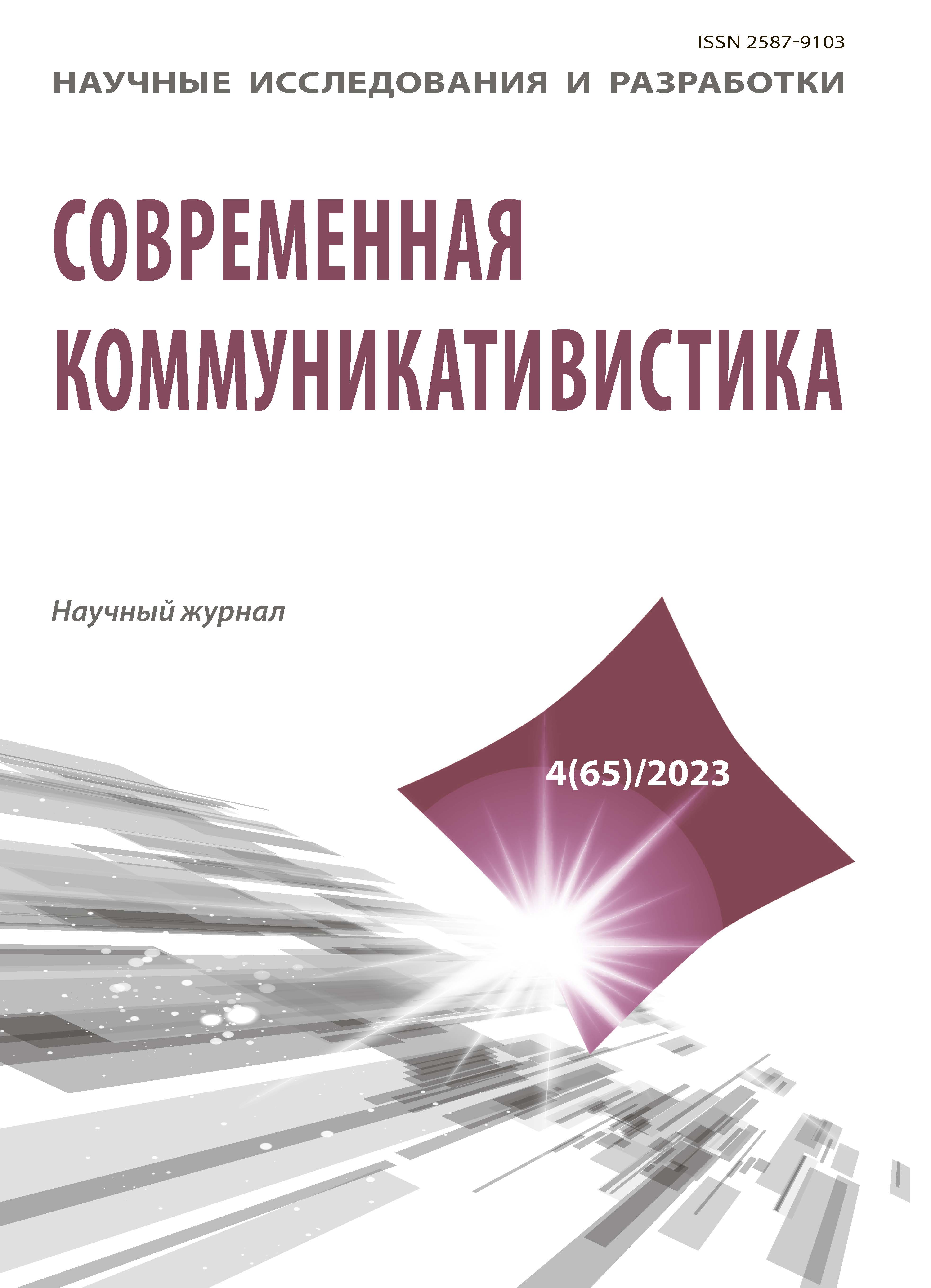The research is a communicative analysis based on the interpretative model of speech behaviour of the incumbent US President J. Biden, demonstrating the implementation of an attempt of political dominance in the international context of the highest state level. The constructed form of communicative representation finds expression on the verbal and nonverbal levels. Specific communicative moves determined allow us to fully perceive the multidimensionality of the embedded meaning. Both the broad macro-textual and narrow micro-textual levels of political discourse are subjected to communicative analysis. The study of a political domination structure, the threat, interpreted through the means of communicative manipulation, acquires a deep consideration. One of the forms of psychological and tactical violence within the framework of political discourse is a threat. The latter receives a pragmatic implementation, reflecting the ways of manifestation in the context of communicative manipulation means – both of direct and indirect expression. Media materials in text and video formats are being studied. The conducted research introduces a number of clarifying theoretical positions in understanding the theory and practice of communicative manipulation technologies.
political dominance, technologies of communicative manipulation, communicative analysis, representative form of communication, verbal level, nonverbal level, threat tactics
1. Betti E. T. Obshchaya teoriya interpretacii [General theory of interpretation]. M.: AST, 2021. 138 p.
2. But N. A. Nekotorye osobennosti upotrebleniya rechevyh aktov ugrozhayushchego haraktera [Some features of the use of threatening speech acts] // Trudy TGTU [Research works of TSTU]. 2019. № 3. P. 132 - 135.
3. Vasin A. A. Nekooperativnye igry v prirode i obshchestve [Non-cooperative games in nature and society]. M.: Russkoe slovo, 2022. 416 p.
4. Vendler Z. K. Illokutivnoe samoubijstvo [Illocutionary suicide]. M.: Slovo, 1985. 139 p.
5. Vishnyakova V. K. Bajden stal odnim iz samyh nepopulyarnyh prezidentov SShA [Biden has become one of the most unpopular US presidents] // https://www.rbc.ru/politics/20/01/2022/61e56d0b9a79472c6fbcaa4c (accessed: 8.04.2023)
6. Garbuzov V. N. Tajny sammita Putin-Bajden. Kto na samom dele popal v lovushku [Secrets of the Putin-Biden summit. Who really fell into the trap] // https://tsargrad.tv/articles/tajny-sammita-putin-bajden-kto-na-samom-dele-popal-v-lovushku_370330 (accessed: 3.04.2023)
7. Grejdina N. L. Medijnaya agressiya v kontekste politicheskoj kommunikacii (na materiale britanskih i amerikanskih SMI) [Media aggression within political communication context (based on British and US media texts)] // NIR. Sovremennaya kommunikativistika [NIR. Modern communication science]. 2022. №2. P. 102-107.
8. Grejdina N. L. Metaforizaciya medijnogo obraza Rossii (na materiale anglijskogo yazyka) [Media image of Russia metaphorization (based on the English language)] // NIR. Sovremennaya kommunikativistika [NIR. Modern communication science]. 2023. №2. P. 94-98.
9. Greckij I. V. Kak Bajden i Putin s’ezdili v Zhenevu [How Biden and Putin went to Geneva] // https://www.rosbalt.ru/blogs/2021/06/17/1907108.html (accessed: 6.04.2023)
10. Dejk T. Diskurs i vlast' [Discourse and power]. M.: Eksmo, 2019. 346 p.
11. Dzyaloshinskij I. M. Zhurnalistika v poiskah modeli razvitiya [Journalism in search of a development model] // Gumanitarnyj vector [Humanitarian vector]. 2021. №6. P. 23-29.
12. Docenko E. L. Psihologiya manipulyacii: fenomeny, mekhanizmy i zashchita [Psychology of manipulation: phenomena, mechanisms and protection]. M.: AST, 2019. 348 p.
13. Zhuchkov D. O. Rechevoj akt ugrozy kak ob’ekt pragmalingvisticheskogo analiza (na materiale anglijskogo yazyka) [The speech act of threat as an object of pragmalinguistic analysis (based on the English language)]. Dissertation for PhD. degree. Voronezh, 2010. 78 p.
14. Kura-Murza S. G. Manipulyacii soznaniem [Manipulations of consciousness]. M.: Logos, 2019. 496 p.
15. Pirogov N. A., Omel'chenko S. V. Vyrazhenie uslovno-sledstvennyh otnoshenij v nemeckom i russkom yazykah (na materiale bessoyuznyh predlozhenij) [Expression of condition and result relations in German and Russian (based on the material of asyndetic sentences)] // Vestnik UYurGU. Seriya Lingvistika [Bulletin of the South Ural State University. Linguistics]. 2009. №2. P. 65-70.
16. Shvec L. G. Dominirovanie i vliyanie v strukture sovremennoj rossijskoj vlasti: problemy i tendencii razvitiya [Dominance and influence in the structure of modern Russian government: problems and development trends] // Gosudarstvennoe i municipal'noe upravlenie [State and municipal administration]. 2017. №2. P. 101-106.
17. Egoistichnoe dominirovanie v mirovoj politike - eto put' v nikuda // https://rossaprimavera.ru/news/b5705143 (accessed: 18.04.2023)
18. Biden and Putin meeting in Geneva // https://cnn.com/world/live-news/biden-putin-meeting-geneva/index.html (accessed: 8.04.2023)
19. Brzezinski Z. K. The grand chessboard: American primacy and its geostrategic imperatives. New York: Basic Books, 2017. 248 p.
20. Huntington S. P. Who are we? The challenges to America’s national identity. New York: Appleton, 2022. 269 p.
21. Joe Biden arriving to meet Putin in Geneva // https://rutube.ru/video/1fc0bdf5de688c442f299191ca2616a1/ (accessed: 3.04.2023)
22. Joe Biden Press Conference transcript after meeting with Putin // https://www.rev.com/blog/transcripts/joe-biden-press-conference-transcript-after-meeting-with-putin (accessed: 11.04.2023)
23. Joe Biden speech on foreign policy // https://www.cnn.com/joe-biden-speech-on-foreign-policy-february-4-america-is-back (accessed: 6.04.2023)







